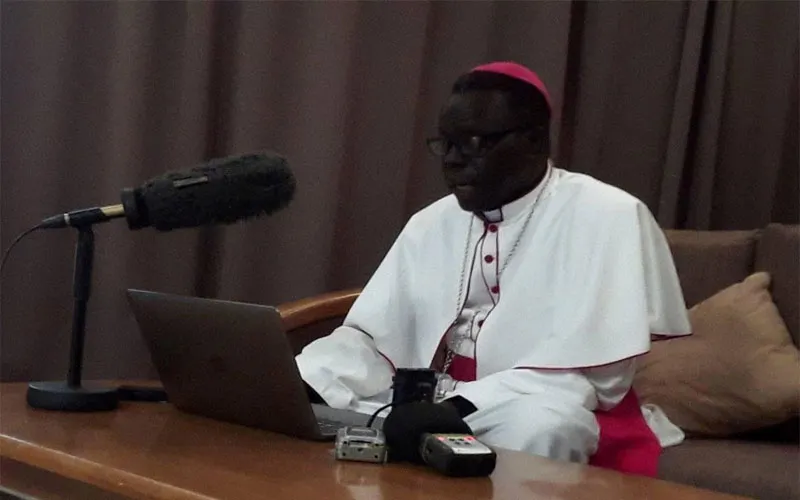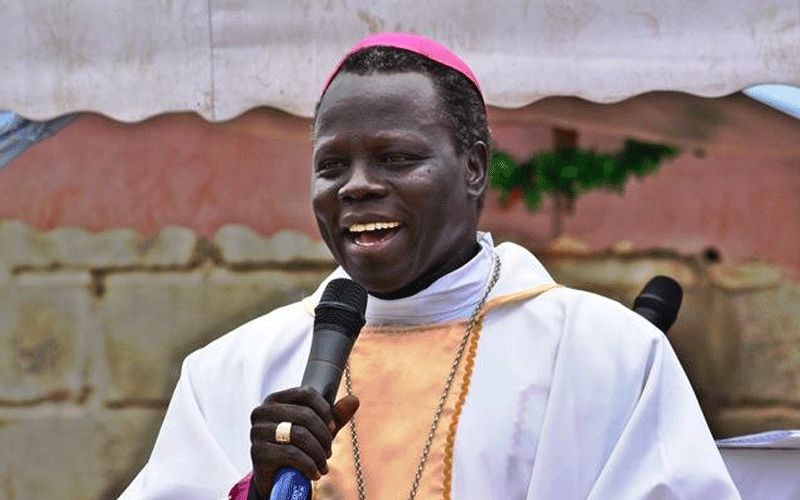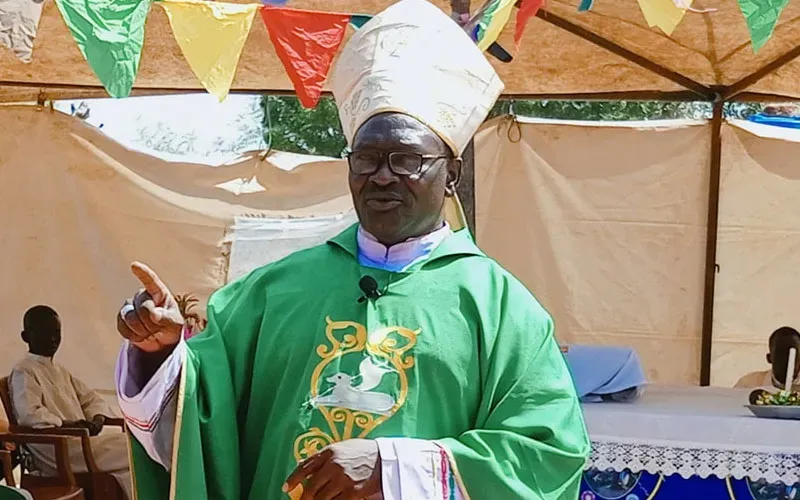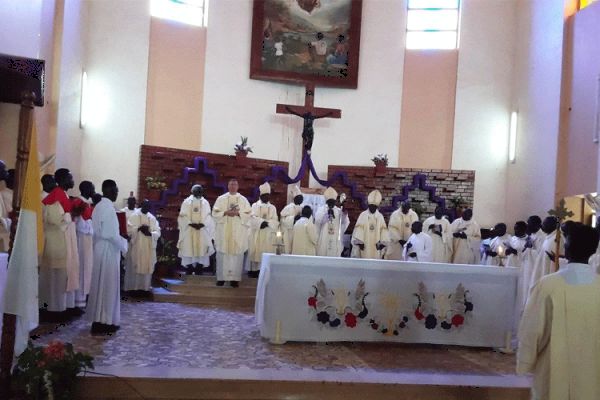Signed by three lay people who claim, at the beginning of the three-page letter, to be “the legitimate representatives of the indigenous clergy and faithful of the Archdiocese of Juba,” the authors revert to the issue of concubinage and state that the Archbishop is “married to seven women” and has “fathered more than six biological children.”
The writers go on to accuse the Archbishop of plotting, alongside some priests and lay faithful, to act against members of the Bari community within the Archdiocese including “abolition of Mass in Bari language, gradual dismissal of all Bari seminarians, deprivation of Bari priests from going for further studies, frustration of all Bari priests from active ministry, systematic dismissal of Bari employees from the institutions of the Church, incardinating to Juba more none Bari priests from the other dioceses of Sudan and South Sudan, etc.”
“I am not coming here to dismiss priests as they accuse me that my plans are to dismiss the priests or to dismiss the seminarians or the indigenous people; I am not here for that; I am here to help people,” Archbishop Ameyu tells ACI Africa.
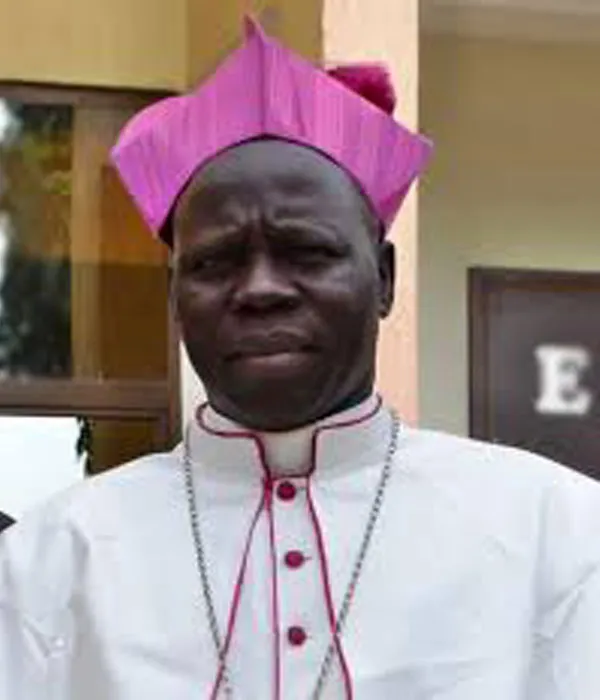
The Archbishop who was ordained a Bishop in March 2019 says that he had been a formator for nearly 20 years and that most of the priests of the Archdiocese of Juba were his students.
(Story continues below)
“Majority of them (priests of Juba Archdiocese) were my students and if I were to be dismissing them, they wouldn’t have been in the Archdiocese today,” the South Sudanese Prelate says and adds, “It is important for us to understand that I have come here to serve them, to put them together and to forge a way of living together in a spiritual way, the way the Church intends us to do.”
Regarding concubinage and children claims, Archbishop Ameyu says the allegations were thoroughly investigated and the disgruntled group accorded an opportunity to argue their case with evidence but were unable to.
“Propaganda Fide sent a high delegation to investigate the accusations that were launched against me. That was from the 4th to the 7th of January, and so this was a high delegation to investigate all those accusations they forwarded against me,” he says adding that among those interrogated by the Vatican-led team of investigators were “around 36 women.”
“They found no evidence concerning those accusations,” he says in reference to the team of investigators from the Holy See and adds, “In fact, that is the reason the Vatican had to reinstate my appointment.”
He discloses that he had made it known to the Holy See, the Catholic Church’s appointing authority, that “if I am found to be guilty, I would prefer (to step down from) my See in the Catholic diocese of Torit, not only (from the appointment in) the Archdiocese of Juba.”
“These were very strong accusations, which are against the whole tradition of the Church that a Bishop has concubines and almost innumerous children, that is unbecoming,” he says and emphasizes that if the allegations were true, he “was going to accept my destiny, that of relinquishing my status of being a Bishop.”
Going forward, Archbishop Ameyu says he is looking at a collaborative ministry, bringing on board people of God who will assist him administer the Archdiocese in line with his mandate as the Local Ordinary.
He says that he plans to constitute a college of Archdiocesan Consultors comprising a group of priests that he will be consulting “for major decisions” and who will help in “the running of the Archdiocese.”
He explains, “The Archbishop or the Bishop is always appointed to work with people and collaborate with the people and that is why the first step that I would like to do is to form the body of Consultors that will help me to administer the diocese whether it is the assets, the people or the sacraments; these people will help me.”
Archbishop Ameyu says that he also plans to put in place a Presbyterial Council, which he describes as “a group of priests to (oversee) the pastoral ministry” of the Archdiocese.
He is also planning to establish a financial committee, comprising lay faithful with relevant expertise and Archdiocesan and Religious Clerics “to help the Archdiocese in finances and investments, so that the bishop will not be directly involved,” he says.
“In regard to the assets of the diocese, this is not one man’s show,” Archbishop Ameyu clarifies and adds, “There are clear structures that are there to make the diocese run well.”
He anchors his hope for a collaborative ministry and possible reconciliation on his encounter with all the clergy of his Archdiocese during Holy Week.
“It has been a good experience for me because here I am in front of those who accused me and those who have signed the papers against me coming together,” he says recalling Holy Thursday.
He adds, “It is a great step, that was my happiness; reconciliation is a process but now here is a sign that they are ready to reconcile with me, so I accepted that.”
“It was a happy moment for me to see that these priests have looked for a way to reconcile and to be loyal to me as their Bishop,” Archbishop Ameyu recalls and concludes, “What is important is that we need to heal.”
